By: Mariam Khalil
A couple of weeks back, I attended the SSC workshop on community service “Leadership in Action,” and I must honestly say that I underestimated the experience. I enjoyed and learned from this opportunity so much that I felt an urgent need to share.
After icebreakers and some quick activities, we headed up to the Good Shepherd Centre in Hamilton, just a bus ride from campus. The group of us were responsible for volunteering at their community food bank and clothing distribution centre. Upon entering the space, a man in a leprechaun suit kindly greeted us and took us upstairs. He sat us down, gave us the following exercise, and instructed us in a soothing voice to close our eyes. He said something along the lines of this:
Now everyone… think about your morning… you are asleep after a long night of studying… because, you have an education, you have goals. So, you wiggle your toes in your warm bed… maybe you put your feet in some slippers, maybe you don’t. Maybe you get up, look in the mirror at yourself in your pj’s… because you can afford night clothes and day clothes. You brush your teeth. You are blessed to own a toothbrush, and some toothpaste to go with it. Maybe you have floss. You have the ability to maintain your hygiene. So, you take a bath, you have the option of hot or cold water… shampoo… maybe even conditioner. You dry yourself with a towel… because you are fortunate enough to have that too… maybe you slip into a robe. You have the option between this shirt and that shirt. You can make yourself a nice cup of coffee, or have a bowl round enough to eat some cereal instead.
This exercise of gratitude really helped us realize how fortunate we are and how many things we do just in one morning that we often take for granted.
We were taught that some people simply do not have these luxuries. I was also shocked to learn that the James St. to the Wentworth St. area in Hamilton was the fifth poorest region in all of Canada, just a short distance away from McMaster or Dundas. I was also saddened to know that this area was comprised mostly of Syrian Refugees and that the second spoken language there was Arabic, after English of course, similar to my spoken languages.
The most beautiful thing I took from our encounter was the respect and dignity that people working at Good Shepherd exhibited towards those less fortunate: they placed great value on “human-ness.” For example, instead of calling people homeless, they would refer to them as guests or brothers and sisters. During our volunteer hours, the workers stressed the phrase, “If you wouldn’t wear it, don’t give it to someone else,” ensuring only the highest quality items were picked out and distributed. This phrase was repeated and reinforced throughout the job. It became our mantra every time we would pick up an item of clothing. All employees there were volunteers and all products came from generous donations.
Having worked at a food bank and clothing drive before in Oakville, I have never seen this level of respect or concern for those in need and was completely in admiration of this Hamilton system.
As the day progressed, we sorted out clothing into bins and restocked items from what they called “the warehouse” to “the marketplace.” The warehouse was exactly that – a warehouse to stock all the items from hygiene products, to food, to clothing, for men and women of all sizes and ages. The marketplace, however, was the innovation. This place was incredible – it looked just like a compartmentalized store.
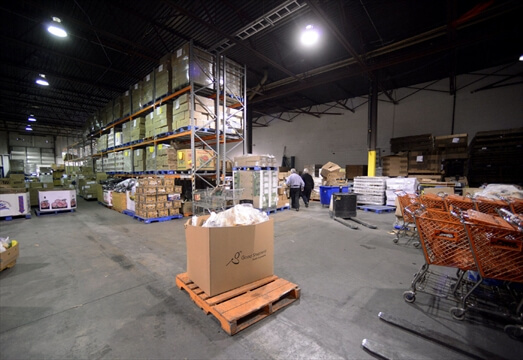
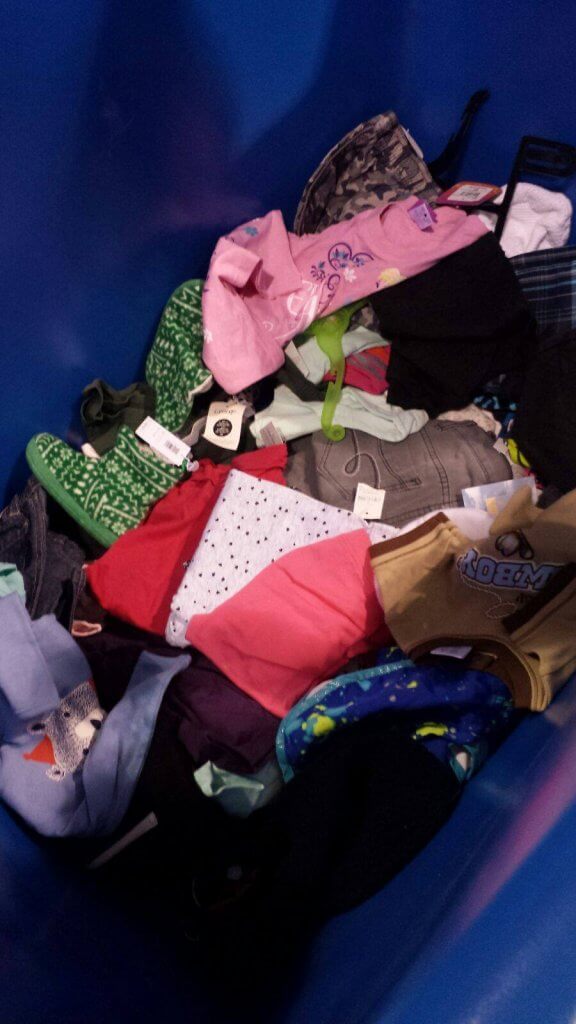
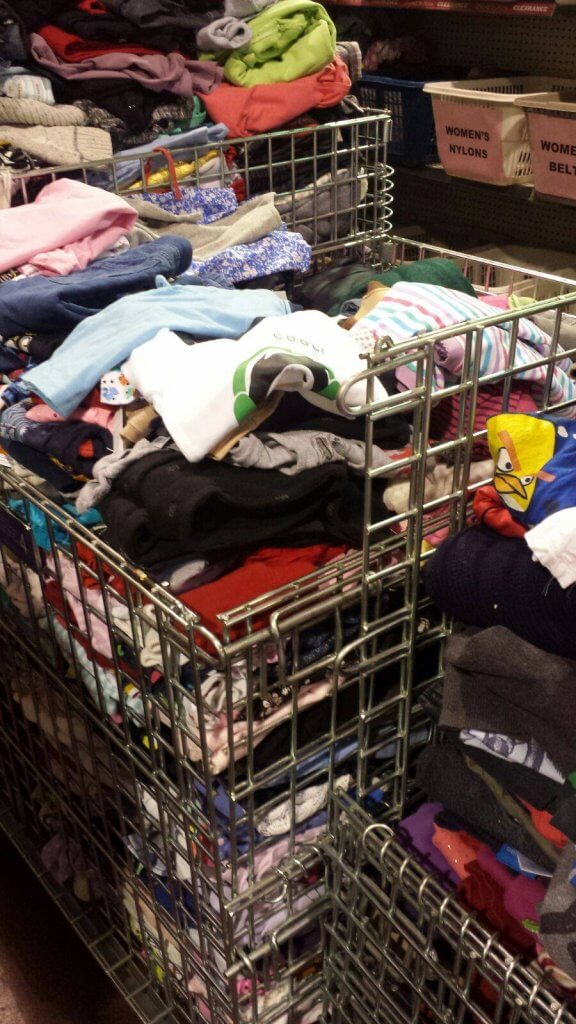
The shelves were stacked with goods, fresh fruits and vegetables stored, milk, eggs, meats and other essentials refrigerated/frozen, plates, cutlery, home décor, blankets, clothing, jackets, etc. all piled gracefully on hangers and shelves. The idea was to experience shopping in a store, except that everything was free. This ensured that families could get what they needed, with an emphasis on feeling dignified and unashamed. I truly loved how Good Shepherd was aware of the stigma of homelessness or the social shame associated with being a family in need and did their best to mitigate it. The regulation system was in place via the use of membership colour-coded cards per family size, as well as colour-coded stickers on items corresponding to those family sizes. This system helped ensure that no one got more than their share.
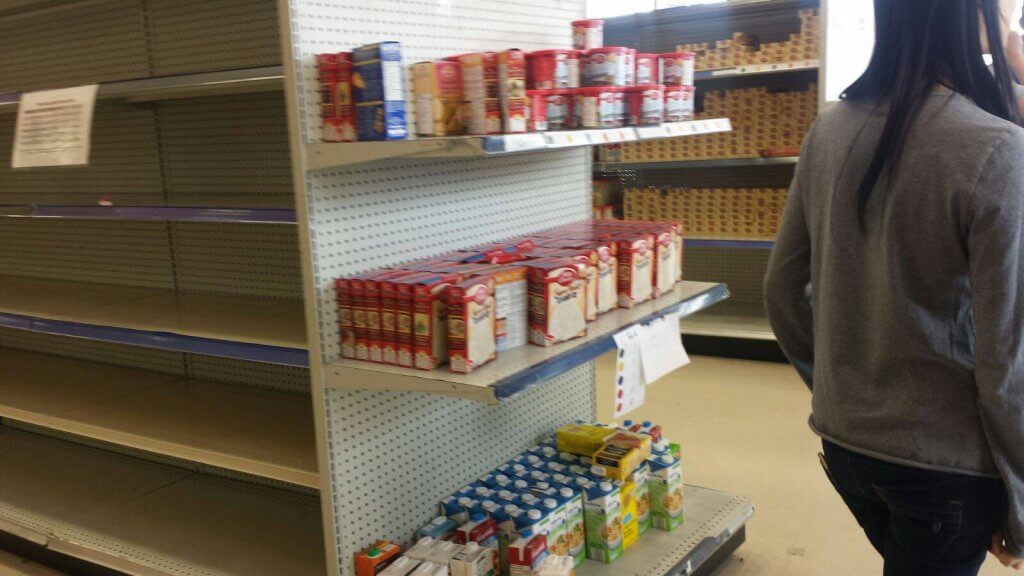
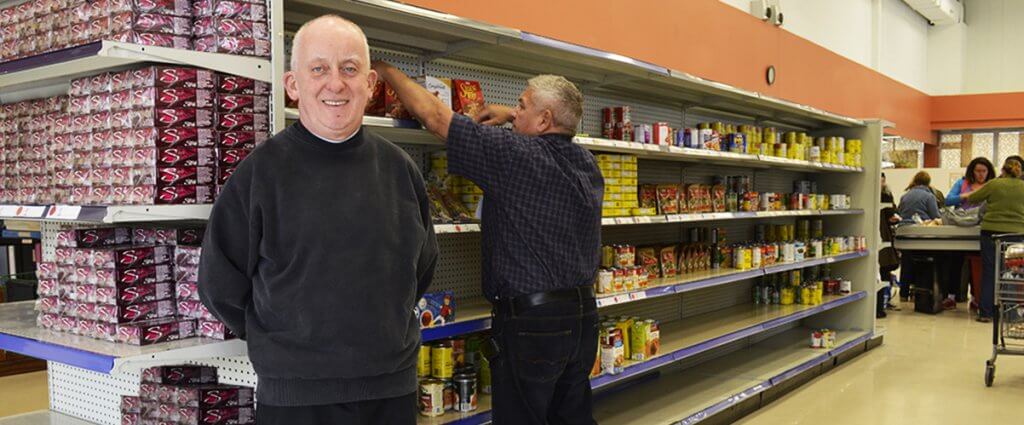
Currently, the Good Shepherd Centre serves 110 families a day, yet plans to expand further. I had the personal pleasure of helping a Syrian Family select coats and blankets. This was a heart-wrenching experience because the one boy could not find a jacket that fit him and the mother thought the blanket was too light for her to sleep with. Unlike myself, however, this family was unable to “just go to another store” to check out stocks on the item: they were stuck with this location or nothing. Nonetheless, these guests remained very polite, quite understanding of the circumstance.
While I wished I could have done more to help, this experience really showed me easily I take things for granted. More importantly, I saw leadership in action in a way that did not encompass meanings of traditional aggression or authority – in a way that dignified, respected and humanized those that needed aid.
About Mariam
Mariam Khalil blogged for the Student Success Centre from 2016 to 2017.